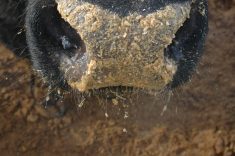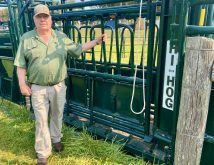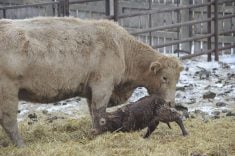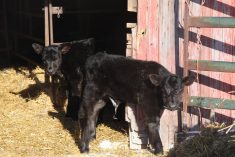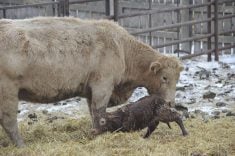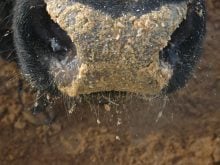Some calves can survive by robbing enough milk from other cows, but they may be smaller than their peers at weaning
It’s easy to bottle-feed a newborn calf when necessary but it’s far more challenging to raise an older calf that loses its mother.
The calf might be semi-wild but too young to go without milk.
Dr. Ray Randall, a veterinarian near Bridger, Montana, says some calves can rob enough milk from other cows, though this is not ideal. Some sneak up to nurse alongside the calf of another cow or rob from behind while the cow’s own calf is nursing. These calves are comfortable with their herd mates and seem to manage, though they might be smaller than the other calves at weaning time.
Read Also
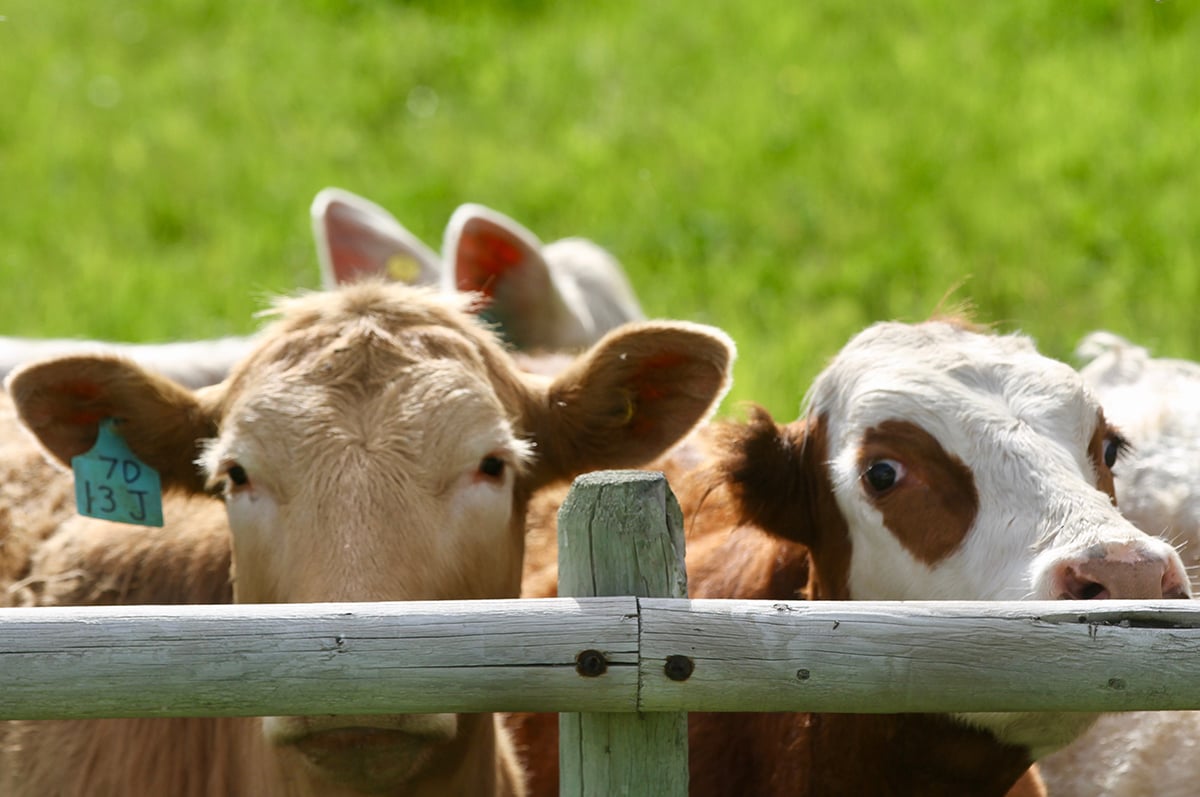
Feeder market consolidates at historic highs
For the week ending Sept. 6, Western Canadian feeder cattle markets were relatively unchanged compared to seven days earlier.
“If you can find a way to get them home from the range or in from the pasture, they can probably do all right even without milk if you can put them on good quality hay and some concentrate like grain or calf pellets,” says Randall.
“You probably won’t need to put them on milk replacer at that age. Milk replacer is expensive, and it can also be a hassle to get a calf that age sucking a bottle if he’s afraid of people.”
The calf could be put with an older animal for security and given good quality feed. The older animal can teach the orphan how to eat it and the young one can also be given access to a creep feeder.
“If you have some good pasture and a little herd of cows on pasture, sometimes another cow will adopt the orphan and let it nurse along with her own calf. If that happens, the motherless calf will do fine. But if the orphan is very young and you need to bring it home to try to bottle-feed it, you’ll want to find a way to get a rope on it without chasing it. The last thing you want to do is stress that calf,” says Randall.
Stress suppresses the immune system and the calf is already stressed from losing its mother. Pneumonia becomes a risk.
If feeding milk, milk replacer or other high-concentrate feed, be aware that the calf’s rumen isn’t fully developed and can’t handle enough forage to do well. However, it can readily digest grain or a more concentrated feed like calf pellets.
“Depending on when the calf lost its mother, it may have already been vaccinated. In that case, it will be OK but if there is any doubt about its immune status, you could give that calf another vaccination with one of the seven or eight-way clostridials for adequate protection,” Randall says.



